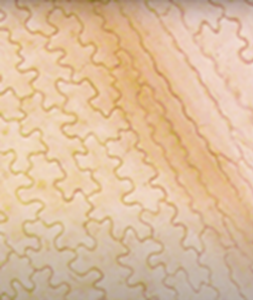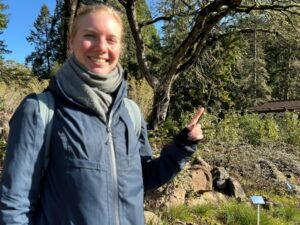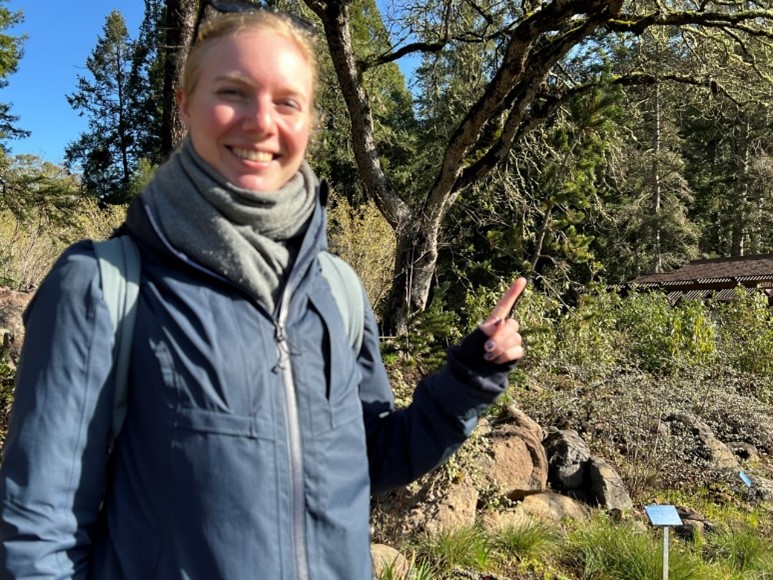Plant adaptation to climate change is a significant concern in the scientific community and the core of the LEMONTREE research project. To address this issue, LEMONTREE PhD student, Astrid Odé, recently visited the world-renowned University and Jepson Herbaria, at the University of California, Berkeley, to conduct experimental work based on eco-evolutionary optimality.
Astrid is studying the effects of environmental changes on stomatal morphology and photosynthesis on elevational gradients. By examining how plants adapt to modern climate change, she hopes to shed light on the impacts of elevated atmospheric CO2 on plant function.

To investigate stomatal density, Astrid first uses fluorescence microscopy on rehydrated samples, but this doesn’t work for all species or samples and often will need to remove the cuticle. Once Astrid has removed the cuticle from a leaf, she can observe the imprints stomata left behind under a light microscope (you can read more about the cuticle preparation technique in this blog article). CO2 concentrations and stomatal density are negatively correlated, which means that as CO2 concentrations rise with climate change, stomatal density decreases. It is hoped that this will be captured in the results from this study and the impacts of elevation on stomatal density.

To conduct this study, Astrid used three species of pine (Pinus longaeva, P. ponderosa, and P. monticola) and two species of oak (Quercus agrifolia and Q. chrysolepis), all of which are native to California. Pinus longaeva or the bristlecone pine, is particularly useful for this study because each bundle of leaves represents a year’s growth. Therefore, Astrid can observe the stomatal density changing from year to year!
The Jepson Herbaria has nearly 2.2 million specimens in its collection, making it an ideal place for experimental plant biologists to conduct research. In addition to field and lab work in California, Astrid spent several months in Perth in 2022. Based at the University of Western Australia (UWA) she conducted stomatal experiments on buckwheat, common wheat, soybean, borlotti bean and maize. These experiments provided valuable insights into how different plant species respond to changes in their environment and you can read more about these experiments here.
Overall, Astrid’s research on stomatal morphology and photosynthesis over elevational gradients will provide valuable insights into how plants are adapting to climate change. Astrid’s research is a significant contribution to the LEMONTREE teams’ efforts to understand how plants have evolved optimal traits for their environment and how we can better model these in land-surface models.
Astrid Odé is a PhD student at the Copernicus Institute of Sustainable Development, Utrecht University. Astrid is supervised by Prof. Karin Rebel and Assistant Prof. Hugo Jan de Boer. Her research is focussed on plant ecophysiology and she has experience in palaeoecology, including cuticle analysis, proxy development and reconstructing growing season dynamics.

